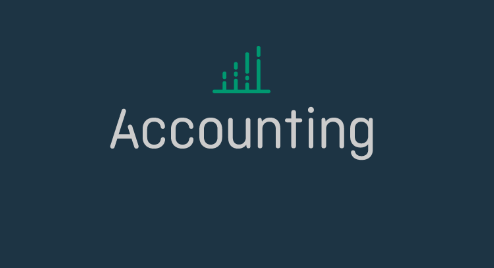
Importance of Accounting in Nigeria
In a rapidly evolving economic environment, the importance of accounting cannot be overstated. Accountants provide decision-makers with accurate and timely financial information, enabling businesses, government entities, and organizations to make informed choices. The integrity of financial systems relies on the competence and ethical conduct of accounting professionals.
Education and Professional Development
1 Academic Pathways for Aspiring Accountants
Becoming an accountant in Nigeria typically involves pursuing a bachelor’s degree in accounting, finance, or a related field. Many accountants further their education by obtaining professional certifications such as the Association of Chartered Certified Accountants (ACCA), the Institute of Chartered Accountants of Nigeria (ICAN), or the Chartered Institute of Management Accountants (CIMA).
2 Professional Certifications
Professional certifications are highly valued in the accounting profession. Obtaining certifications demonstrates a commitment to excellence and adherence to professional standards. In Nigeria, the ICAN and ACCA certifications are widely recognized, opening doors to various career opportunities in accounting and finance.
3 Continuing Professional Development
Staying updated on accounting standards, regulations, and emerging trends is essential for accounting professionals. Continuous professional development (CPD) programs, workshops, and seminars help accountants in Nigeria enhance their skills, stay current with industry developments, and maintain their professional certifications.
Roles and Responsibilities of Accountants in Nigeria
1 Financial Reporting and Analysis
Accountants are responsible for preparing accurate and timely financial reports that reflect the financial health of an organization. They analyze financial statements to provide insights into profitability, liquidity, and solvency, assisting stakeholders in making informed decisions.
2 Tax Planning and Compliance
Navigating the intricacies of Nigeria’s tax laws is a significant aspect of an accountant’s role. Accountants help businesses optimize their tax positions, ensure compliance with tax regulations, and prepare and file accurate tax returns. This contributes to the country’s revenue generation and economic stability.
3 Audit and Assurance
Auditing is a critical function in ensuring financial transparency and accountability. Accountants conduct audits to assess the accuracy of financial statements and compliance with regulatory requirements. This process enhances the credibility of financial information and provides assurance to stakeholders.
4 Budgeting and Financial Planning
Accountants play a key role in budgeting and financial planning processes. They collaborate with management to develop budgets, monitor financial performance against budgeted targets, and provide recommendations for improving financial efficiency and effectiveness.
Challenges and Opportunities in the Accounting Profession in Nigeria
1 Regulatory Compliance
The ever-evolving regulatory landscape poses a challenge for accountants in Nigeria. Staying compliant with changing accounting standards, tax regulations, and reporting requirements requires a commitment to ongoing learning and adaptability.
2 Technological Disruption
Technological advancements, while providing opportunities for efficiency and automation, also pose challenges. Accountants need to embrace technology, such as accounting software and data analytics tools, to remain competitive and deliver value in a rapidly digitizing business environment.
3 Ethics and Professionalism
Maintaining high ethical standards is paramount in the accounting profession. Accountants in Nigeria face the challenge of upholding integrity and professionalism, particularly in situations where ethical dilemmas may arise. Adhering to ethical guidelines builds trust and credibility in the profession.
4 Talent Development and Retention
The demand for skilled accountants in Nigeria creates opportunities for professionals, but it also intensifies competition among employers. Organizations must focus on talent development, providing attractive incentives, and fostering a positive work environment to retain skilled accounting professionals.
Impact of Accountants on Nigeria’s Economy
1 Economic Governance
Accountants contribute to effective economic governance by ensuring transparency and accountability in financial reporting. This is crucial for attracting investments, promoting economic growth, and maintaining the confidence of stakeholders in Nigeria’s financial systems.
2 Business Decision-Making
Accurate financial information provided by accountants aids businesses in making informed decisions. Whether it’s expanding operations, entering new markets, or optimizing financial strategies, accountants play a pivotal role in guiding decision-makers towards sustainable and profitable choices.
3 Revenue Generation
Through effective tax planning and compliance, accountants contribute to revenue generation for both businesses and the government. Properly managed finances and tax strategies ensure that organizations can fulfill their financial obligations, promoting economic stability.
4 Financial Inclusion
Accountants also play a role in promoting financial inclusion by assisting small and medium-sized enterprises (SMEs) in managing their finances. This support enables SMEs to access funding, contribute to economic development, and create employment opportunities in Nigeria.
Future Trends in Accounting in Nigeria
1 Adoption of Technology
The future of accounting in Nigeria is closely tied to the increased adoption of technology. Cloud-based accounting software, artificial intelligence, and blockchain are expected to streamline processes, enhance accuracy, and provide real-time financial insights.
2 Sustainability Reporting
As global awareness of environmental and social issues grows, there is an increasing focus on sustainability reporting. Accountants in Nigeria are likely to play a role in measuring and reporting on the environmental and social impact of businesses.
3 Data Analytics and Business Intelligence
The use of data analytics and business intelligence tools is poised to become more prevalent in the accounting profession. Accountants will leverage data-driven insights to provide valuable recommendations for strategic decision-making.
4 Remote Work and Flexibility
The rise of remote work and flexible work arrangements is a trend that is likely to impact the accounting profession. Accountants in Nigeria may find increased opportunities for remote work, contributing to a better work-life balance.
Conclusion
Accountants in Nigeria play a pivotal role in shaping the financial landscape of the country. Their responsibilities extend beyond traditional bookkeeping to encompass financial planning, regulatory compliance, and strategic decision-making. As the profession navigates challenges and embraces opportunities, accountants will continue to be key contributors to economic governance, business success, and financial stability in Nigeria.







